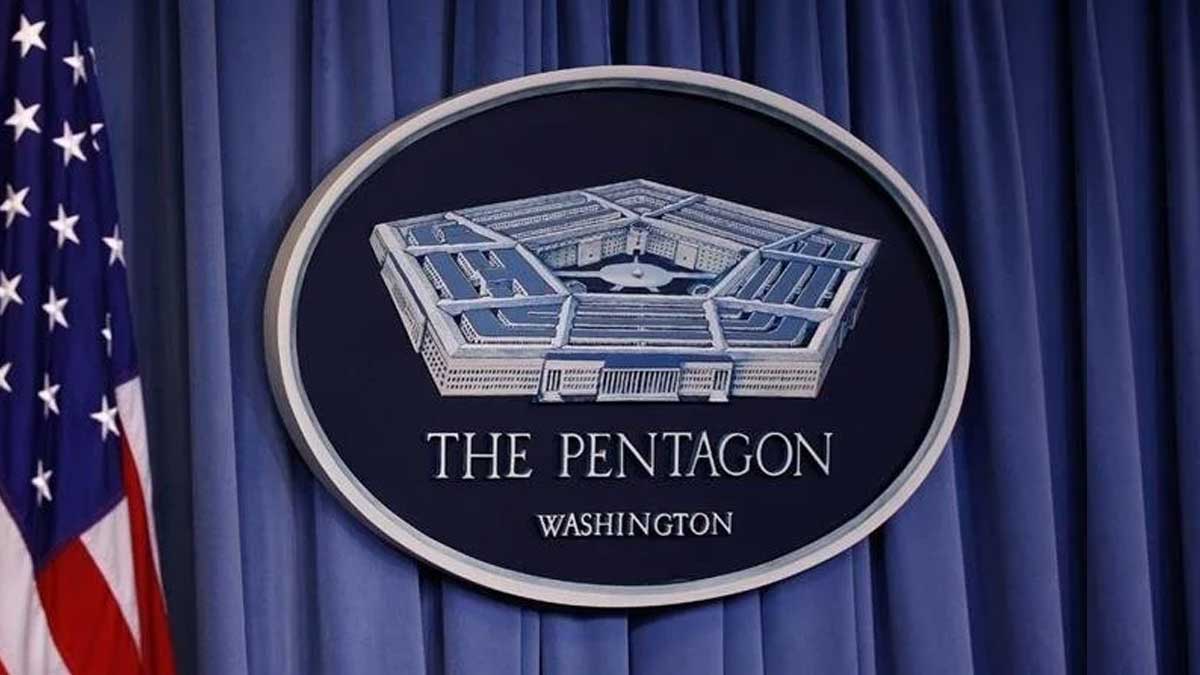- Home
- Billionaires
- Investing Newsletters
- 193CC 1000
- Article Layout 2
- Article Layout 3
- Article Layout 4
- Article Layout 5
- Article Layout 6
- Article Layout 7
- Article Layout 8
- Article Layout 9
- Article Layout 10
- Article Layout 11
- Article Layout 12
- Article Layout 13
- Article Layout 14
- Article Sidebar
- Post Format
- pages
- Archive Layouts
- Post Gallery
- Post Video Background
- Post Review
- Sponsored Post
- Leadership
- Business
- Money
- Small Business
- Innovation
- Shop
Recent Posts
Pentagon Confirms ‘Havana Syndrome’ at 2023 NATO Summit

A senior official from the Department of Defense who participated in the NATO summit in Vilnius, Lithuania, in 2023, experienced symptoms consistent with Havana Syndrome, a mysterious condition characterized by headaches, nausea, and ear pain. The Pentagon, speaking through deputy press secretary Sabrina Singh, confirmed this on Monday, following a report linking the syndrome to Russia.
The official, whose identity remains undisclosed, was not part of Defense Secretary Lloyd Austin’s delegation to the summit, Singh clarified. She also stated that the individual’s symptoms aligned with those of previous cases categorized as “anomalous health incidents,” a term synonymous with Havana Syndrome.
Singh’s comments came in response to a report jointly released by “60 Minutes,” The Insider, and Der Spiegel, which detailed an instance of Havana Syndrome during the NATO summit in Lithuania, focusing on the Ukraine-Russia conflict. The report suggested a potential connection between the syndrome and the use of non-lethal acoustic weapons, allegedly tested by Russian GRU Unit 29155, known for its clandestine operations.
Singh avoided direct comment on Russia’s involvement, instead referring questions to the intelligence community, which is actively investigating the origins of Havana Syndrome. The current status of the affected official, particularly their return to work, remains undisclosed.
Background information provided in the report indicates a pattern of Havana Syndrome cases involving U.S. officials, extending beyond the 2016 incident at the U.S. embassy in Havana, Cuba. Similar symptoms have been reported by U.S. personnel in Austria, China, Georgia, Germany, India, Russia, Taiwan, and Vietnam, suggesting a broader trend. The report draws from documents, data, and interviews with experts and unnamed U.S. officials, highlighting concerns about the potential use of acoustic weapons and the lasting impact on affected individuals, including brain tissue damage.
The Pentagon’s acknowledgment of the official’s symptoms adds to the ongoing investigation into Havana Syndrome, raising questions about the potential implications for international relations and the safety of diplomatic personnel.
Recent Posts
Categories
- 193cc Digital Assets2
- 5G1
- Aerospace & Defense46
- AI37
- Arts3
- Banking & Insurance11
- Big Data3
- Billionaires477
- Boats & Planes1
- Business328
- Careers13
- Cars & Bikes76
- CEO Network1
- CFO Network17
- CHRO Network1
- CIO Network1
- Cloud10
- CMO Network18
- Commercial Real Estate7
- Consultant1
- Consumer Tech180
- CxO1
- Cybersecurity68
- Dining1
- Diversity, Equity & Inclusion4
- Education7
- Energy8
- Enterprise Tech29
- Events11
- Fintech1
- Food & Drink2
- Franchises1
- Freelance1
- Future Of Work2
- Games141
- GIG1
- Healthcare78
- Hollywood & Entertainment186
- Houses1
- Innovation42
- Investing2
- Investing Newsletters4
- Leadership65
- Lifestyle11
- Manufacturing1
- Markets20
- Media193
- Mobile phone1
- Money13
- Personal Finance2
- Policy567
- Real Estate1
- Research6
- Retail1
- Retirement1
- Small Business1
- SportsMoney33
- Style & Beauty1
- Success Income1
- Taxes2
- Travel10
- Uncategorized8
- Vices1
- Watches & Jewelry2
- world's billionaires446
Related Articles
What Healthcare Can Learn from Nvidia’s Success
The tech industry is undergoing a seismic transformation, with two of its...
By 193cc Agency CouncilDecember 16, 2024Salmonella Triggers Recalls of Costco Eggs and Cucumbers
The recent salmonella outbreak has prompted the recall of two major food...
By 193cc Agency CouncilNovember 30, 2024Bird Flu Found in Raw Milk in California, Recall Issued
California health authorities have confirmed the presence of the bird flu virus...
By 193cc Agency CouncilNovember 25, 2024UniDoc Health Launches Mobile ‘Health Cube’ for Remote Care
UniDoc Health, a Vancouver-based company, is revolutionizing healthcare accessibility with the launch...
By 193cc Agency CouncilNovember 23, 2024















Leave a comment